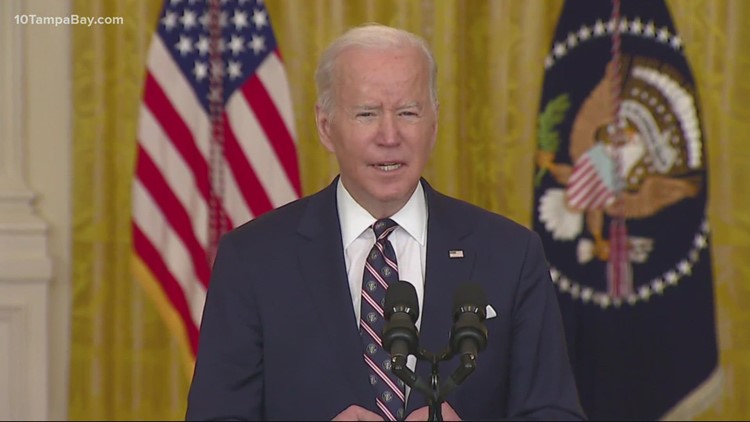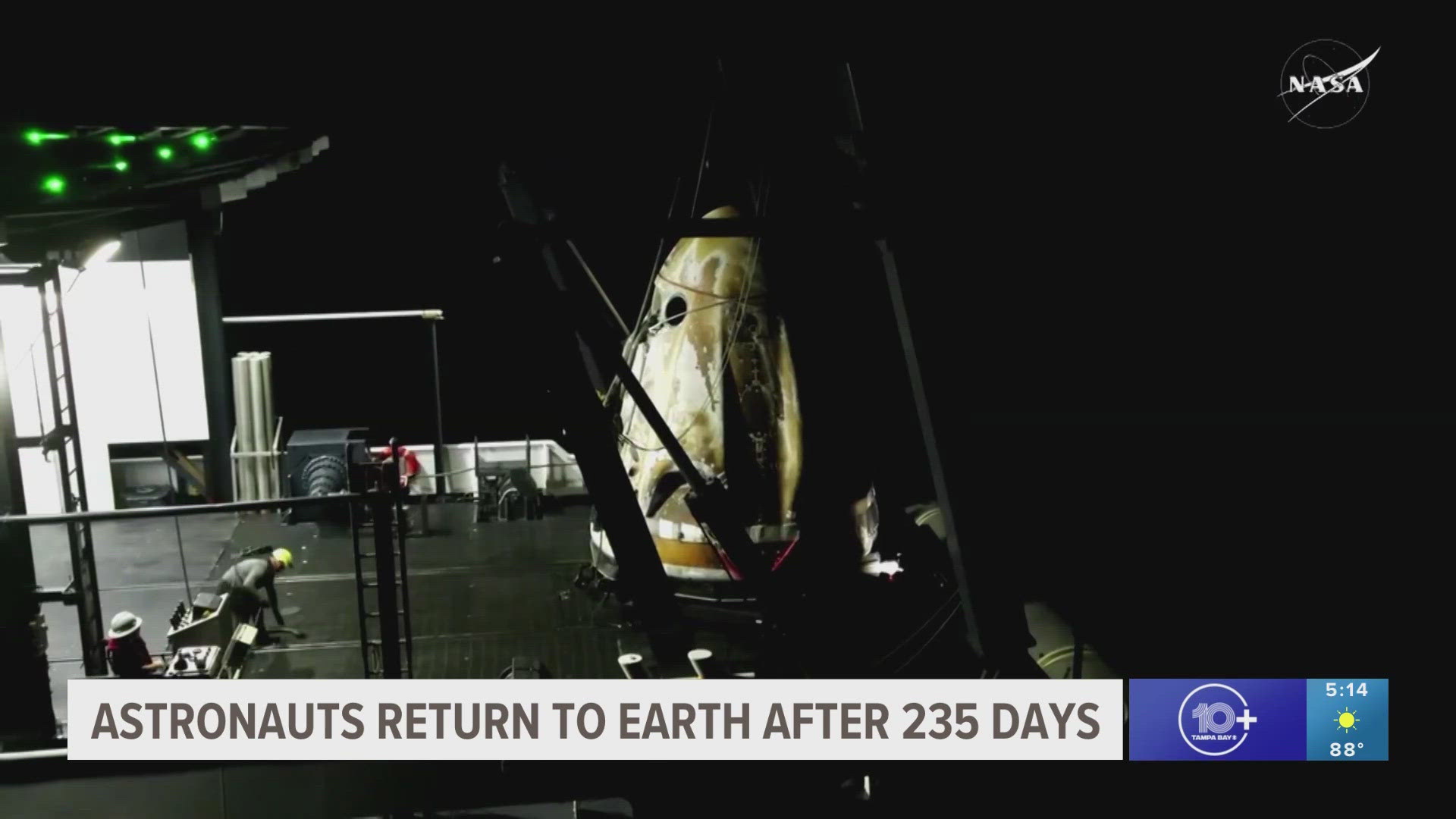WASHINGTON, D.C., USA — Among new sanctions President Joe Biden announced Thursday against Russia for its full-scale invasion of Ukraine, is an effort to "degrade" the country's space program.
"Between our actions and those of our allies and partners, we estimate that we'll cut off more than half of Russia's high-tech imports. And we'll strike a blow to their ability to continue to modernize the military. It'll degrade their aerospace industry, including their space program," Biden said.
The announcement appears to have struck a nerve with Roscosmos chief Dmitry Rogozin who fired off several tweets after Biden addressed the nation and it's safe to say he wasn't pleased.
On Twitter, the head of Roscosmos asked Biden if he wanted to ban countries from launching their spacecraft on "the most reliable Russian rockets in the world."
"This is how you are already doing it and are planning to finally destroy the world market of space competition from January 1, 2023, by imposing sanctions on our launch vehicles. We are aware. This is also not news. We are ready to act here too," Rogozin wrote, per a translation.
He also questioned if Biden wanted to "destroy" Russia's cooperation on the ISS, of which, the country played an integral role in building.
"This is how you already do it by limiting exchanges between our cosmonaut and astronaut training centers. Or do you want to manage the ISS yourself?" Rogozin asked.
A departure from Russia would essentially cause more than two decades of cooperation with the U.S. aboard the space station to come to an end.
But Rogozin's line of questioning on Twitter didn't stop there. The Roscosmos chief also took aim at NASA's latest plan to intentionally crash the International Space Station into the Pacific Ocean when it retires in 2030.
"If you block cooperation with us, who will save the ISS from an uncontrolled deorbit and fall into the United States or Europe? There is also the option of dropping a 500-ton structure to India and China. Do you want to threaten them with such a prospect? The ISS does not fly over Russia, so all the risks are yours. Are you ready for them?" Rogozin wrote, per a translation.
He's referring to the portion of NASA's ISS Transition Report that notes three Russian Progress spacecraft would be able to help the orbiting laboratory de-orbit.
In a statement to CBS News, the nation's top space agency said research operations aboard the orbiting laboratory are continuing "safely."
"NASA continues working with the State Space Corporation Roscosmos ... and our other international partners in Canada, Europe, and Japan to maintain safe and continuous International Space Station operations," NASA told the national outlet.
Russia and the United States have a decades-old relationship when it comes to the International Space Station.
The "largest, most complex international construction project" to form the International Space Station began in Kazakhstan when the Zarya Functional Cargo Block launched into low-Earth orbit atop a Proton rocket in 1998.
The first crew – American Bill Shepherd and Russians Sergei Krikalev and Yuri Gidzenko – would then blast off from Kazakhstan on Oct. 31, 2000. Two days later, they swung open the space station doors and clasped their hands in unity.
It marked the first moment in what has become more than 20 years of Russian cosmonauts and American astronauts working in unity aboard the ISS. But that doesn't mean issues haven't come up.
During a three-month span in 2021, Roscosmos experienced an "unplanned firing" of Russia's new Multipurpose Laboratory Module, had smoke alarms go off in the Russian segment and temporarily changed the ISS's orientation during the Soyuz MS18's engine testing.
Not to mention, Russia's cooperation with the space station came into question after several news outlets, citing Rogozin, reported the corporation was planning to potentially leave the ISS. The Roscosmos chief would later blame confusion over Russia's status when it comes to the ISS on an interpretation problem during an interview with CNN.
The ISS operates off the International Space Station Intergovernmental Agreement which is an international treaty signed in the late 90s by the 15 governments involved in the project.
There are currently four NASA astronauts, two Russian cosmonauts and one European astronaut aboard the International Space Station.
The Associated Press contributed to this report.



